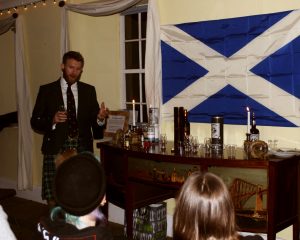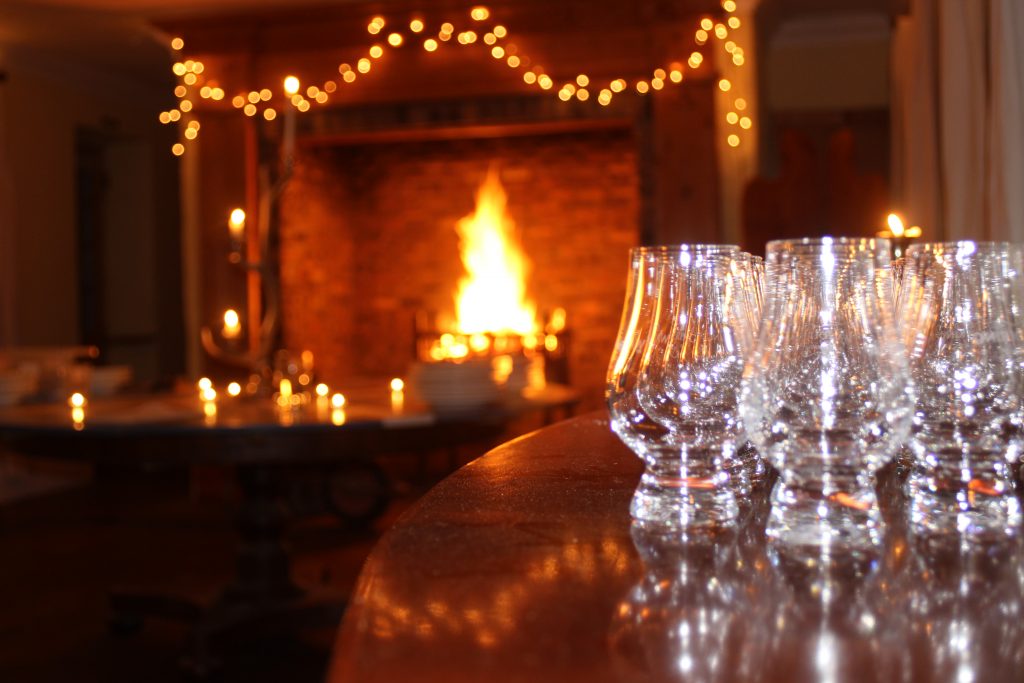The school this week celebrated Burns Night, to commemorate the life and work of Scotland’s national poet, Robert Burns.
Some forty staff, students and guests watched as the haggis was piped in by Jonny Fowle, a whisky expert who runs Wandering Whisky, who also read the Address to a Haggis and gave a masterclass in Scotland’s age-old tipple. (Jonny is pictured below).
The first verse of the Address, in the Scots dialect, goes like this:
Fair fa’ your honest, sonsie face,
Great chieftain o’ the puddin-race!
Aboon them a’ ye tak your place,
Painch, tripe, or thairm:
Weel are ye wordy o’ a grace
As lang’s my airm.
The first Burns supper was held by some of Burns’ friends in 1801, the fifth anniversary of his death. Traditionally, the supper’s main dish is haggis, neeps and tatties (turnip and mashed potatoes).
As the poet’s popularity grew around the world, Burns suppers began to be held across Scotland, and then in other parts of the world. Burns’ books have been translated into some 40 languages.
Burns’ first collection of poetry, Poems Chiefly in the Scottish Dialect, was published in 1786 and includes the favourite To A Mouse, comparing the lives of mice and men.

Burns’ has also influenced music. Who doesn’t sing his Auld Lang Syne on New Year’s Night? Bob Dylan cites My Love is Like a Red, Red Rose as his greatest lyrical inspiration.
His work has influenced 20th Century American authors. JD Salinger’s book Catcher in the Rye references the song Comin’ thro’ the Rye and John Steinbeck’s novel Of Mice and Men is named after a line in the poem To a Mouse.
In politics as in artistic accomplishment, Robert Burns was the people’s poet. He came from humble beginnings, and writing never made him rich.
But, as a pioneer of the Romantic movement, many of the early founders of socialism and liberalism found inspiration in his works – which partly explains why Burns has always been popular in Russia.
Burns’ talent has created an enduring legacy in literature, politics and music. Not bad for a poor ploughman who died at the age of 37.
And every year at the Chippendale school, we’re proud to raise a glass to our national Bard.
